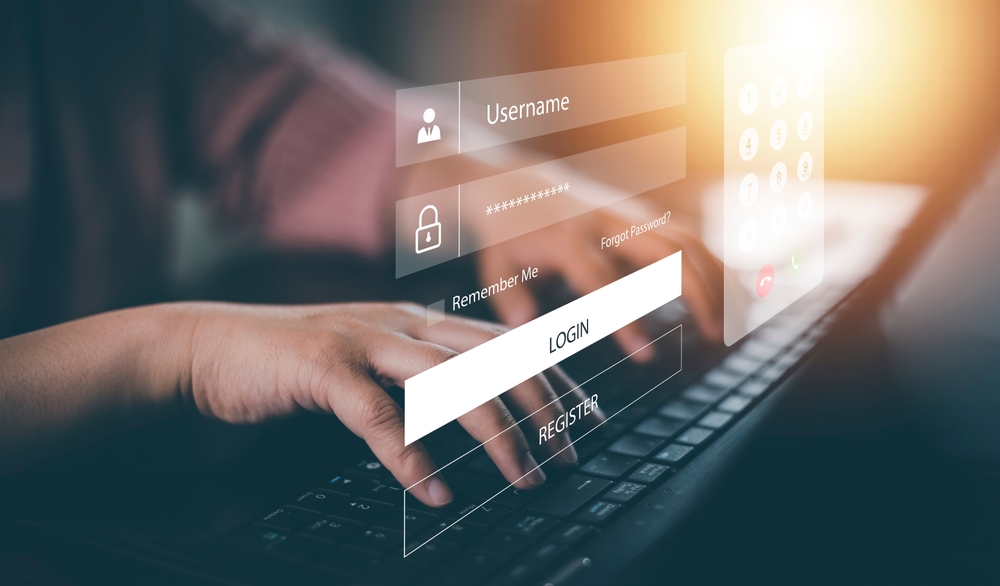

A social media presence can be very rewarding for businesses. Some business owners may see it as an opportunity to promote their brand, as well as engage with their customers. They are not wrong, considering that 4.48 billion people across the world use social media.
However, the business owner has to be careful when managing their social media security. There are bad people out there that intentionally try to hack social media accounts. So how does social media hacking happen? How can you prevent it? This guide answers those questions and more.
One of the biggest things that can lead to your social media account getting hacked is if you have a weak password. This is something that is easy to guess or something that you use quite often for other logins. An example of a weak password could simply be using the word “password”. Other examples include using your name, using your birthday, using your maiden name, etc.
This is one of the most common reasons why user accounts get hacked on the internet. About 30% of people that have experienced a data breach did so due to a weak password. Considering that 59% of Americans use their birthdays or names in their passwords, it is easy to assume why they are considered weak – it gives hackers the opportunity to easily guess your password. Once they do that, they have access to your social media account which can cause a lot of damage.
Weak passwords are not the only thing that you have to watch out for – you have to consider the damage that a repetitive password could do as well. Let’s say that you use the same password for your social media account as you do for an account with a hotel chain. One day, that hotel chain could experience a data breach that compromises all of your account information with that chain. If you used the same password on both platforms, hackers may use that exposed password to try to see if it works for any of your other accounts on the internet. If it does, that is where you can run into trouble.
The point here is that you need to try to strengthen your passwords and try to use unique passwords for sensitive accounts like this.
Setting up two-factor authentication for any business account that you use adds an extra layer of security for any account that you do this with. Let’s use passwords as an example. If a hacker gets access to your password for your business social media account, it can damage your business. However, if you have two-factor authentication, a password is not the only thing that they need to hack your account.
They would need access to another level of security that you set up. In most cases, this typically means access to your mobile device or access to your email account. Those tend to be resources where two-factor authentication comes into play and verifies that the owner of the account is trying to access it. It is vital to take the time to set this up for your business account in case your passwords get compromised.
If you are going to have a business account, you need some online security that protects your account from being compromised. It is important to make sure that you have antivirus software installed on your device or even the right hardware depending on what business you are operating.
You can hire a third party to handle all of your security needs and send you alerts for hacking situations that may arise. With this arrangement, you would have professionals monitoring your activity and they will be able to flag anything that they deem suspicious.
On top of this, computer forensics teams could collect all of this data and help you get justice in the event that serious hackers are caught trying to compromise your social media account. In other words, it never hurts to have someone watching your back.
Finally, you need to look out for the signs that a phishing scam is afoot. For those of you who are not familiar with this, it is when a hacker tries to manipulate you into compromising your own personal information.
What they will do is mimic a company that they suspect you know and trust. Then, they will send you a fake email or a fake message either requesting more information from you or a link that they want you to click. If you click the link while you are signed into your account, that account can officially become compromised. The same happens if you reveal too much personal information that compromises your business through one of these phishing scams.
Make sure that you are always on the lookout for this and do some additional research on what the most likely phishing scams are these days.
Bad people are going to do everything they can to try to hack social media accounts. What you need to do is make it impossible for them. Make sure that you and your employees have strong passwords, unique passwords, set up two-factor authentication, watch out for phishing scams, and increase your online security.
Do you know where to begin with this? If not, we are here to help. Contact us to find out how to get better online security for your business.